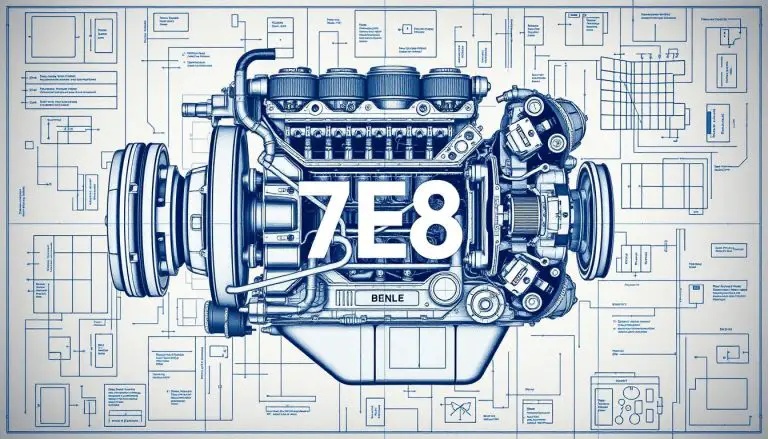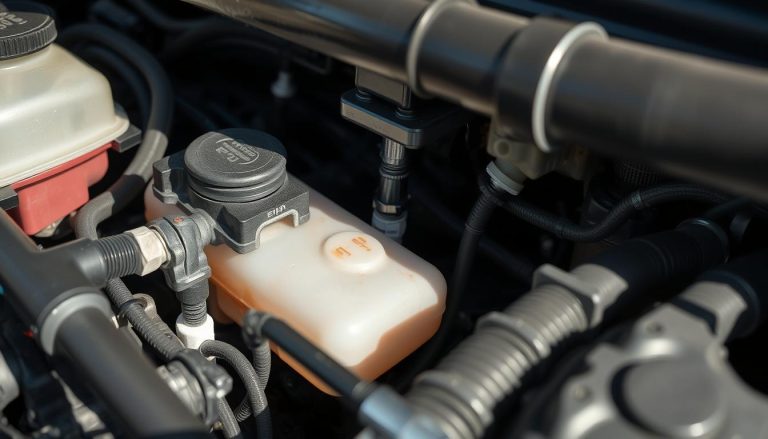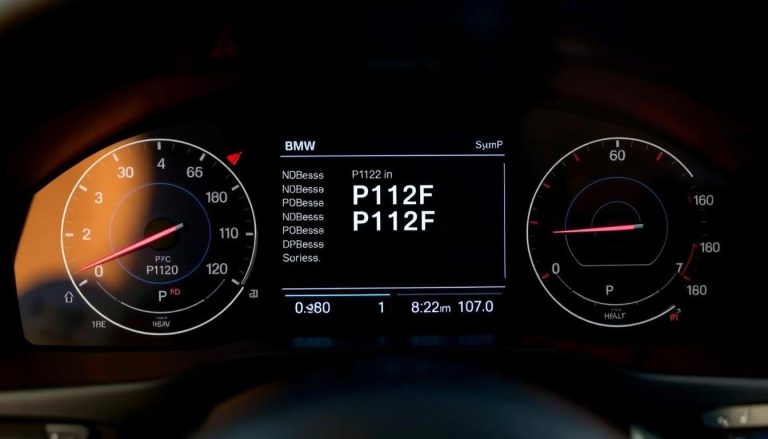If your check engine light has just flickered to life and you’re scratching your head over the P0360 code, you’re not alone. This enigmatic error code often sends drivers into a bit of a tailspin. Understanding what it means can be both enlightening and essential for maintaining your vehicle’s health. The P0360 code pertains specifically to issues within the Ignition Coil J Primary/Secondary Circuit – but what does that really entail? Buckle up as we delve into the causes, symptoms, diagnosis, and fixes associated with this pesky trouble code. By the end of this post, you’ll have all the tools you need to tackle any related challenges head-on!
What does the P0360 code mean?
The P0360 code is a diagnostic trouble code that signals an issue with the ignition coil, specifically in the primary or secondary circuit of Ignition Coil J. This component plays a crucial role in your engine’s performance by generating the necessary voltage to ignite the air-fuel mixture.
When this code appears, it indicates irregularities in how electrical signals are sent through the ignition system. A malfunction here can lead to misfires, reduced fuel efficiency, and increased emissions.
Most modern vehicles come equipped with onboard diagnostic systems that monitor these functions closely. When they detect a problem, such as an open or short circuit within coil J’s wiring or connectors, they trigger the check engine light and store the P0360 code for reference during diagnosis. Understanding this code is essential for maintaining optimal vehicle operation and ensuring you address any underlying issues promptly.
What parts can be affected by P0360 code ?
When the P0360 code appears, it can impact several crucial components of your vehicle’s ignition system.
The ignition coil is the primary suspect. It helps transfer electrical energy to the spark plugs, producing a spark that ignites the fuel-air mixture in the engine.
Next on the list are spark plugs themselves. If they’re worn or damaged, they may not function properly with a malfunctioning ignition coil.
Wiring and connectors associated with these parts are also vulnerable. Corrosion or damage here can disrupt connectivity and lead to performance issues.
Additionally, other sensors like crankshaft position sensors might be affected since they work closely with the ignition system for optimal timing and efficiency.
Each of these elements plays a vital role in ensuring smooth engine operation. Addressing any faults early on can prevent further complications down the road.
What are the possible causes of a P0360 code?
The P0360 code can arise from various issues within the ignition system. One common culprit is a faulty ignition coil, which can disrupt the flow of electricity necessary for proper engine performance.
Wiring problems are another significant cause. Damaged or corroded wires may prevent signals from reaching the ignition coil correctly, leading to misfires and poor combustion.
Additionally, a malfunctioning crankshaft position sensor could trigger this code. This sensor plays a crucial role in determining when to fire the spark plugs, so any failure here directly impacts the ignition circuit.
Even an engine control module (ECM) error might contribute to this issue. If the ECM misinterprets data due to internal faults or software glitches, it may wrongly signal that there’s a problem with the primary or secondary circuits.
Bad connections at connectors related to these components can create intermittent faults that lead to triggering the P0360 code unexpectedly.
What are the common symptoms of a P0360 code?
When your vehicle triggers a P0360 code, it often comes with noticeable symptoms. One of the most common signs is a rough engine idle. You might feel vibrations or hear unusual noises when your car is running.
Frequent stalling can also occur, particularly during acceleration. This happens as the ignition coil struggles to maintain consistent power.
Another symptom to watch for is decreased fuel efficiency. If you’re suddenly visiting the gas station more often, that could be linked to this issue.
Additionally, you may notice warning lights illuminating on your dashboard. The check engine light will usually activate alongside other potential alerts related to ignition problems.
Performance issues like misfires are prevalent with a P0360 code. These misfires can lead to hesitation and lack of responsiveness while driving, significantly affecting your overall experience on the road.
What are the diagnostic steps for a P0360 code?
To diagnose a P0360 code, start by connecting an OBD-II scanner to your vehicle’s diagnostic port. This tool will help you read the trouble codes stored in the system.
Once you identify the P0360 code, inspect the ignition coil and wiring for visible damage or corrosion. Look closely at connectors as they can be a common failure point.
Next, perform a multimeter test on the ignition coil. Check both primary and secondary circuits for continuity and resistance values according to manufacturer specifications.
If everything seems fine with the ignition components, examine related sensors like the camshaft position sensor. This sensor plays a crucial role in engine timing and can influence coil performance.
Clear any fault codes from memory and take your vehicle for a test drive to see if P0360 reappears. If it does, further investigation into ECM or harness issues may be necessary.
How serious Is the P0360 Code? Can I continue driving with the P0360 code?
The P0360 code indicates an ignition coil issue, specifically with the J primary/secondary circuit. This is not a minor problem; it can lead to significant engine performance issues.
Driving with this code active may cause misfires, reduced power, and poor fuel efficiency. You might notice your vehicle hesitating or struggling during acceleration.
Continuing to operate a car with a P0360 code poses risks. It could worsen the underlying issue and potentially damage other components over time. Ignoring this code may also affect emission control systems, leading to more costly repairs down the line.
While you may be able to drive short distances at lower speeds, it’s best practice to have it diagnosed as soon as possible. Addressing it promptly will help maintain optimal vehicle performance and safety on the road.
What are the repair solutions for a P0360 – Ignition Coil J Primary/Secondary Circuit Malfunction ?
Repairing the P0360 code typically starts with inspecting the ignition coil. If it’s found to be faulty, replacing it is essential for restoring proper engine function.
Next, check wiring and connectors associated with the ignition system. Damaged wires or loose connections can disrupt signal flow and trigger this error code.
If those components are intact, testing the Engine Control Module (ECM) might be necessary. Sometimes a software update or reprogramming is required to resolve communication issues between systems.
In some cases, spark plugs may also need replacement if they’re worn out. They play a vital role in ensuring efficient combustion within your engine.
After completing repairs, always reset the diagnostic codes using an OBD-II scanner. This will help confirm whether the issue has been resolved effectively and prevent future occurrences of the P0360 code.
How long and How much does it cost to diagnose and repair a P0360 code?
Diagnosing and repairing a P0360 code typically ranges from $100 to $200. Many factors influence this price, including labor rates in your area and the specific vehicle make and model.
The diagnosis process often includes scanning the vehicle’s computer for error codes, inspecting wiring and connectors, and testing ignition components. This can take about one to two hours at most shops.
If repairs are needed, costs can increase based on parts required. Replacing an ignition coil might cost between $150 to $300, depending on whether it’s OEM or aftermarket.
Some dealerships may charge more due to higher service fees but provide warranty coverage on their work. Always ask for a detailed estimate before proceeding with any repair services.
How can I avoid a P0360 code?
Regular maintenance is key to avoiding the P0360 code. Routine inspections of your ignition system can catch issues before they escalate.
Ensure that your spark plugs are in good condition and replaced as needed. Worn or damaged plugs can lead to misfires, triggering diagnostic trouble codes.
Keep an eye on wiring connections related to the ignition coil. Corrosion or loose connections may compromise performance, resulting in errors like P0360.
Using high-quality fuel also plays a role. Poor fuel quality can cause engine knocking, affecting overall efficiency and potentially leading to fault codes.
Consider using a reliable OBD-II scanner periodically for early detection of any emerging problems within your vehicle’s systems. Regularly checking for error codes allows you to address minor issues before they snowball into more significant concerns down the line.
What happens if you ignore a P0360 code?
Ignoring a P0360 code can lead to serious consequences for your vehicle. The ignition coil is crucial for starting the engine and maintaining its performance. If you let this problem fester, it could result in misfires and reduced power.
Over time, untreated ignition issues may cause further damage to other components like spark plugs and fuel injectors. This cascade effect can drive repair costs sky-high.
Additionally, a persistent check engine light might distract you from noticing other critical alerts that require immediate attention. That’s not just inconvenient; it poses safety risks while driving.
You might also experience decreased fuel efficiency as the engine struggles to compensate for poor combustion caused by the faulty ignition circuit. Ignoring these signs only compounds problems down the road, making early intervention essential for long-term vehicle health.
Is the P0360 code specific to certain car makes or models?
The P0360 code is not exclusive to specific car makes or models. It can appear in a variety of vehicles equipped with ignition systems that include multiple coils.
Many manufacturers, including Ford, General Motors, Honda, and Toyota, may trigger this code under similar conditions involving the ignition coil circuit.
However, the frequency of occurrence might vary based on design and engineering choices made by each automaker. Some brands may have vulnerabilities due to certain components or wiring layouts.
It’s essential for vehicle owners to consult their service manual for details related to their particular model. Understanding your vehicle’s specifications can provide insight into why you’re encountering this issue.
Keep in mind that while some cars are more prone to certain codes like P0360, proper maintenance plays a crucial role in preventing these errors across all makes and models.
What other codes may be related to P0360?
When dealing with the P0360 code, it’s essential to understand its context within your vehicle’s diagnostics. This code can often appear alongside other trouble codes that indicate related issues. For instance, you might encounter P0300, which signifies random/multiple cylinder misfires – a problem heavily influenced by ignition coil performance.
Codes like P0351 through P0358 are also worth noting as they relate specifically to different ignition coils in the system. If you’re seeing any of these codes together with the P0360 code, it’s crucial to address both problems simultaneously for an effective repair.
Additionally, keep an eye out for codes such as P0201 and P0202 that pertain to injector circuits if fuel delivery may be affected due to electrical faults caused by faulty coils. Understanding how these codes interrelate helps provide a more comprehensive approach when diagnosing engine issues linked to the ignition system.
By being aware of potential related trouble codes and addressing them promptly, you can ensure your vehicle operates smoothly while minimizing further damage or complications down the line.


